#stephen batchelor
Explore tagged Tumblr posts
Text

10 notes
·
View notes
Text

Every moment of experience is contingent on a vast complex of myriad conditions. Nothing exists in and of itself as ‘this’ or ‘that,’ ‘self’ or ‘other.’ Everything is what it is only in relation to what it is not. To recognize this emptiness is not to negate things but to glimpse what enables anything to happen at all...
~ Stephen Batchelor
2 notes
·
View notes
Text
Dharma laico: come la meditazione e la pratica spirituale si adattano al mondo moderno (Stephen Batchelor)
Nel mondo contemporaneo, sempre più persone si avvicinano alla pratica del dharma e alla meditazione senza legarsi a tradizioni religiose specifiche. Questo approccio laico, libero da dogmi e strutture gerarchiche, permette di esplorare gli insegnamenti buddhisti in modo flessibile e creativo, adattandoli alle esigenze della vita moderna. Attraverso la meditazione e la consapevolezza, i…
#buddhismo#compassione#consapevolezza#Dharma#insegnamenti#meditare#meditazione#pratica#religioni#risveglio#sofferenza#spiritualità#Stephen Batchelor#tradizioni
0 notes
Text

Currently Reading
Stephen Bachelor THE ART OF SOLITUDE
#reading#solitude#Stephen Batchelor#Buddhist books#Buddhist thought#Buddhism#Zen Buddhism#entheogens#Montaigne#Michel de Montaigne#Essays#2020
1 note
·
View note
Text
* * * *
"Acts, like contracts, Are as irrevocable as debts– Their irrevocability Ensures fruition."
"The consequences of what we do now will outlive us. The irrevocability of our actions implies that we are responsible not only for our own conduct in this life but for the impact of our actions after our death."
– Stephen Batchelor, commentary on Nagarjuna
[alive on all channels]

Daniel Kordan
Vietnam
Ladies collecting water lilies and washing them in the Mekong river delta to sell later at the market.
#Vietnam#water lilies#Mekong river delta#Daniel Kordan#Stephen Batchelor#Nagarjuna#alive on all channels#quotes#commentary
378 notes
·
View notes
Text
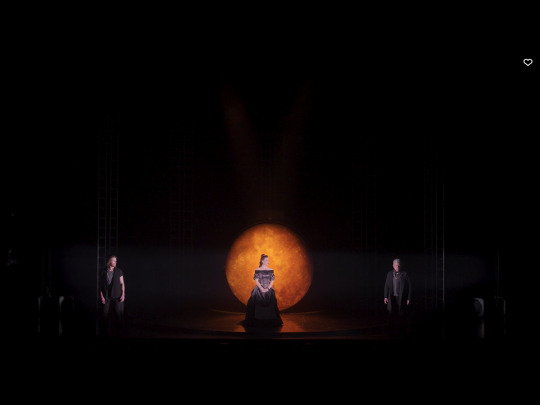



The staging in this show is Incredible. Takes my breath away every time.
(Please excuse the single auto-generated subtitle. And the other iPad nonsense in the screenshots)
#holding achilles#patroclus#achilles#agamemnon#montaigne#thetis#menelaus#odysseus#Chiron#briseis#stephen madsen#karl richmond#christy tran#Heracles the bear#Thomas Larkin#Priam#Jennifer vuletic#John Batchelor#nic prior#lauren jackson
23 notes
·
View notes
Text
"True solitude is a way of being that needs to be cultivated. You cannot switch it on or off at will. Solitude is an art. Mental training is needed to refine and stabilize it. When you practice solitude, you dedicate yourself to the care of the soul." Stephen Batchelor, Buddhist scholar and teacher
12 notes
·
View notes
Note
do you have any book recommendations? i’m coming out of a reading slump and i just think you have good taste in everything lol. i saved the one you added to that post (dead famous) bc it looked interesting, so if you have any other suggestions i’d appreciate it 🤎🤎🤎 i hope you’re well!!
hii omg thank you!! hope you're well too! 🫶 short stories and plays tend to help me get out of a reading slump. I read The Last Days of Judas Iscariot this year and was blown away by it, immediately scoured for full productions available online. one of my favourite short story collections is Winesburg, Ohio by Sherwood Anderson. if you enjoy those sort of American small town/rural stories and imagery then this is perfect. Walden by Henry David Thoreau as well as Rilke's Letters to a Young Poet are both some of my favourite books and whether you're in a reading slump or a life slump, they're both very comforting. on the other hand, a heavier but still a relatively short read is Dostoevsky's Notes from Underground. Convenience Store Woman by Sayaka Murata for all the strange women who feel so very off in this world. if you want something more on the horror side, The Only Good Indians by Stephen Graham Jones will keep you on the edge. The Picture of Dorian Gray and Sheridan Le Fanu's Carmilla are also a good way to get out of a reading slump. oh Venus in Furs by Sacher-Masoch if you want something scandalous.
I was writing a paper on criminalization of activism last semester so can recommend Criminalization of Activism: Historical, Present, and Future Perspectives edited by Valeria Vegh Weis. the already mentioned Dead Famous book is also pretty good, it's not a difficult read at all, it's just a lot of historical tidbits. just finished Ten Myths About Israel by Illan Pappe, currently reading Edward Said's Orientalism. a really good book that I'm always recommending to people is Chromophobia by David Batchelor, it's a short book but so insightful and interesting. Acid Dreams: The Complete Social History of LSD: The CIA, the Sixties, and Beyond is a fun and fucked up read. if you enjoy science, and like pop physics, Hyperspace: A Scientific Odyssey Through Parallel Universes, Time Warps, and the Tenth Dimension by Michio Kaku. I love vampires and everything about them, a must-read for every vampire aficionado out there is definitely Nina Auerbach's Our Vampires, Ourselves and if you want something more folklore, less popular culture then Vampires, Burial and Death by Paul Barber.
26 notes
·
View notes
Text
And, as I have just mentioned, this reality is not easy. Indeed, according to the Buddha’s First Noble Truth, it is Dukkha, a word which has been traditionally translated as ‘Suffering’ (although this translation has been challenged and qualified in modern Western Buddhism, as in the case of Stephen Batchelor who, as we have seen above, uses the term ‘anguish’). However, in Pali it literally means a ‘bad wheel’ (‘Du’ - ‘Bad’ and ‘Kha’ - ‘Wheel’) and Buddhism is therefore concerned with the ending of a feeling that life is stuck, or not moving forward well.
The Buddhist practitioner attempts to mitigate the effects of Dukkha through the practice of mindfulness, meditation and ethical precepts. In Stoicism, likewise, the path of Virtue is seen as resulting in the cessation of, it would not be a stretch to say, ‘Dukkha’. For Epictetus’ answer to ‘What is the task of Virtue?’ is the Greek word ‘Eurhoia’ which literally means a state of good flow. This is essentially describing a life which is, therefore, not ‘stuck’.
Interestingly, in the ancient Buddhist writings, the opposite of ‘Dukkha’ is ‘Sukha’ which literally means a ‘good wheel’, implying a life which moves forward freely and which is unimpeded. In this sense, the life of ‘Eurhoia’ or the life of ‘Sukha’ are arguably seeking something similar. It is often how we respond to life that can lead us to feeling ‘stuck’ or ‘trapped’, in the same way that a faulty wheel might get stuck in the mud.
Stoicism and Buddhism, in contrast, try to suggest ways that life can move towards becoming a continuous flow of unimpeded activity which wisely bends this way or that depending on the external circumstances we find ourselves in. And both claim that this possible, despite the fact that life is hard. All this is the ideal.
However, although we are all capable of such wise action, we are also all at a natural disadvantage. By this I mean that not only do both systems agree that life is difficult but they also agree that humans make it even more difficult for themselves by craving for life to be other than how it actually is. In Buddhism, the Second Noble Truth is that the origin of Dukkha is ‘self-centered craving.’ Likewise, in Stoicism, craving for life to be other than how it is is the origin of emotional disturbance. In this light, Epictetus says: ‘For this is the origin of suffering: to crave something and for it not to come about’.
Epictetus considers that the unhelpful mental states that result from such craving must be removed from life altogether. As he puts it, the task of the philosopher is as follows: ‘to strive to remove from one’s own life grief and lamentation, that shout of ‘Oh poor me!’ and ‘oh how miserable I am!’, and misfortune and failure.’
For Epictetus, as for the Buddha, the philosophical path is about removing this kind of craving, which is really the result of a continuous self-preoccupation to have the universe accord with one’s own wishes. Rather, we need to see what the universe brings us and then work out how best we can live within this reality.
It is helpful to point out here that by ‘virtue’, the Stoics did not mean ‘virtue’ in the sense that we often think of it today, i.e. as an application of moral precepts (perhaps in a religious context). Rather, the ancient Greek word in question, ‘arete’, implies instead a kind of ‘skill’ or ‘excellence’ in the art of living. Stoic ‘virtue’ is about wise choices and maintaining an excellent state of mind and character in the face of life. And the application of this kind of ‘virtue’, although no easy task, is precisely what allows for life to ‘flow well’.
[...]
In order to make ethical progress in life and ‘skill at living well’, we need first to turn our attention inwards: our outer life will be a reflection of our inner life. We need to understand how our minds work and how to cultivate our minds in deliberately skilful directions.
Consider first Marcus Aurelius and then the often referenced opening lines of the Dhammapada, the earliest extant collection of sayings attributed to the Buddha. They run as follows: ‘The character of your mind will be such as is the character of your frequent thoughts, for the soul takes its dye from thoughts.’ ‘All that we are is the result of what we have thought: it is founded on our thoughts, it is made up of our thoughts.’
-- Patrick Ussher, Stoicism & Western Buddhism
10 notes
·
View notes
Text
One of the most difficult things to remember is to remember to remember. Awareness begins with remembering what we tend to forget. Drifting through life on a cushioned surge of impulses is but one of many strategies of forgetting. Not only do we forget to remember, we forget that we live in a body with senses and feelings and thoughts and emotions and ideas.
- Buddhism Without Beliefs by Stephen Batchelor
21 notes
·
View notes
Text


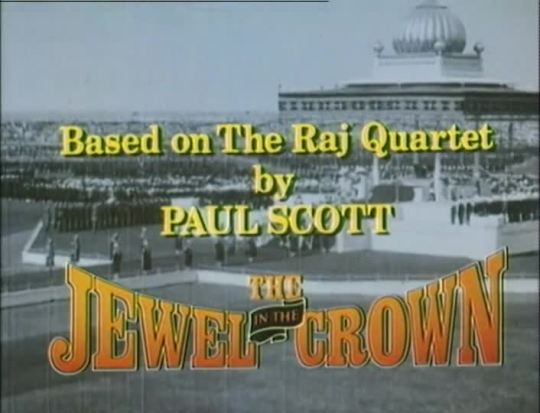

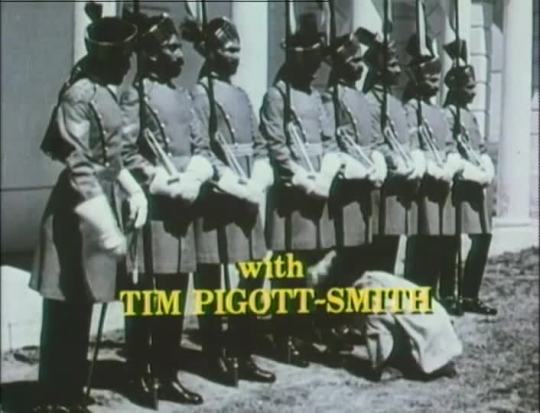
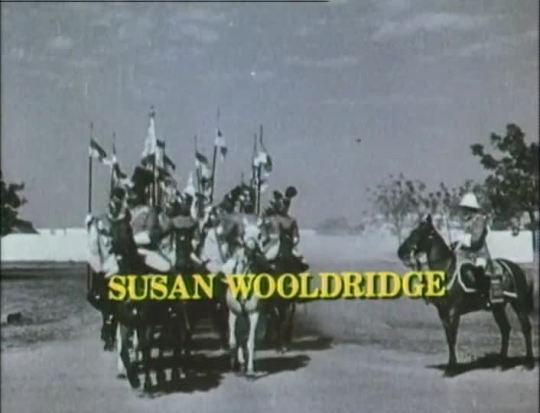
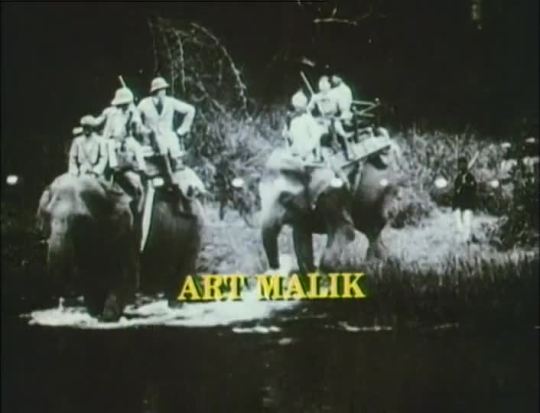
The Jewel in the Crown - ITV - January 9, 1984 - April 3, 1984
Period Drama (14 episodes)
Running Time: 60 minutes
Stars:
Peggy Ashcroft as Barbara Batchelor
Janet Henfrey as Edwina Crane
Derrick Branche as Ahmed Kasim
Charles Dance as Sgt Guy Perron
Geraldine James as Sarah Layton
Rachel Kempson as Lady Manners
Art Malik as Hari Kumar
Wendy Morgan as Susan Layton
Judy Parfitt as Mildred Layton
Tim Pigott-Smith as Supt./Capt/Maj/Lt Col Ronald Merrick
Eric Porter as Count Dmitri Bronowsky
Susan Wooldridge as Daphne Manners
Ralph Arliss as Capt. Samuels
Geoffrey Beevers as Capt Kevin Coley
James Bree as Maj/Lt Col Arthur Grace
Jeremy Child as Robin White
Warren Clarke as Cpl "Sophie" Dixon
Rowena Cooper as Connie White
Anna Cropper as Nicky Paynton
Fabia Drake as Mabel Layton
Nicholas Farrell as Edward "Teddie" Bingham
Matyelok Gibbs as Sister Ludmila Smith
Carol Gillies as Clarissa Peplow
Rennee Goddard as Dr Anna Klaus
Jonathan Haley and Nicholas Haley as Edward Bingham Jr
Saeed Jaffrey as Ahmed Ali Gaffur Kasim Bahadur, the Nawab of Mirat
Karan Kapoor as Colin Lindsey
Rashid Karapiet as Judge Menen
Kamini Kaushal as Shalini Sengupta
Rosemary Leach as Fenella "Fenny" Grace
David Leland as Capt Leonard Purvis
Nicholas Le Prevost as Capt Nigel Rowan
Marne Maitland as Pandit Baba
Jamila Massey as Maharanee Aimee
Zia Mohyeddin as Mohammad Ali Kasim
Salmaan Peerzada as Sayed Kasim
Om Puri as Mr de Souza
Stephen Riddle as Capt Dicky Beauvais
Norman Rutherford as Edgar Maybrick
Dev Sagoo as S.V. Vidyasagar
Zohra Sehgal as Lady Lili Chatterjee
Frederick Treves as Lt Col John Layton
Stuart Wilson as Capt James Clark
Leslie Grantham as Signals Sergeant
#The Jewel in the Crown#TV#Period Drama#ITV#1984#1980's#Tim Pigott-Smith#Susan Wooldridge#Art Malik#Charles Dance#Geraldine James
6 notes
·
View notes
Text
Awakening is no longer seen as something to attain in the future, for it is not a thing but a process — and this process is the path itself.
— Buddhism Without Beliefs by Stephen Batchelor
20 notes
·
View notes
Text

Almost a century of service to the Crown recorded on one family headstone in Curraghkippane Cemetery outside Cork City.
Edward Burke, a veteran of the Crimea and Indian Mutiny died in 1895.
3819 Private Stephen Burke, son of Edward and Johanna Burke, of 8, Batchelors Quay, Cork. He was killed in the Ypres Salient, aged 42, on 13 July 1915 and is buried in Potijze Cemetery. Stephen was born in Clonmel.
6536 Private Cornelius Burke, son of Johanna Burke, of 8, Batchelors Quay, Cork. Killed in France serving with 2nd Bn, Royal Irish Regiment on 19 October 1914. He is commemorated on the Le Touret Memorial.
2718797 Guardsman Edward Burke, 1st Bn, Irish Guards, son of Michael and Ellen Burke, Cork. Killed in Italy 9 February 1944 aged 28. He is buried in Anzio War Cemetery.
#ww1 #ww2 #redcoat #18thfoot #britisharmy #royalirishregiment #britishempire #leinsterregiment # crimea #indianmutiny #irishguards
5 notes
·
View notes
Text
Oltre il dualismo: come la meditazione ci insegna a vedere la realtà in modo fluido e interconnesso (Stephen Batchelor)
Nel cuore della meditazione e della pratica contemplativa, si nasconde una profonda verità che sfida le nostre convenzioni quotidiane: il mondo non può essere ridotto a semplici categorie di “esistente” o “non esistente”. Questa intuizione, radicata negli insegnamenti del Buddha, ci invita a osservare con attenzione il flusso costante della vita, dove ogni fenomeno – un pensiero, un respiro, un…
#buddha#compassione#consapevolezza#creatività#disciplina#dualismo#impegno#meditare#meditazione#saggezza#Stephen Batchelor
0 notes
Text

Currently Reading
Winton Higgins REVAMP Writings on Secular Buddhism
Foreword by Stephen Batchelor
0 notes
Text
Solitude’s Promontory
A found poem uncovered in ‘The Art of Solitude: Buddhist Scholar and Teacher Stephen Batchelor on Contemplative Practice and Creativity’from Maria Popova’s The Marginalian Solitude is an art –we must learn to wait in acceptanceof a moment, of a piece of music, the polyphony of birds, the patter of rain.Alonebefore a sheet of paperor a…
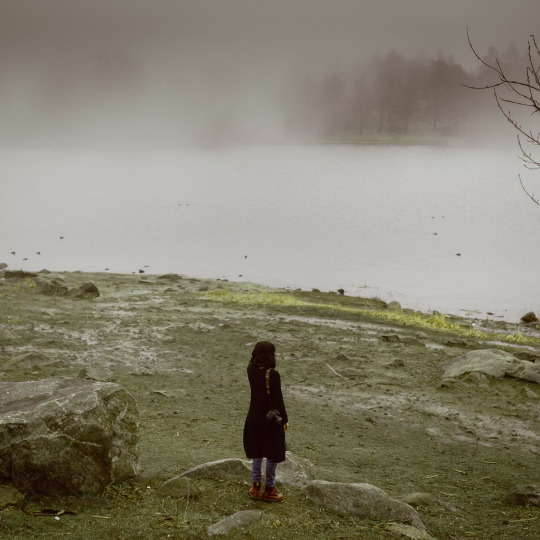
View On WordPress
0 notes